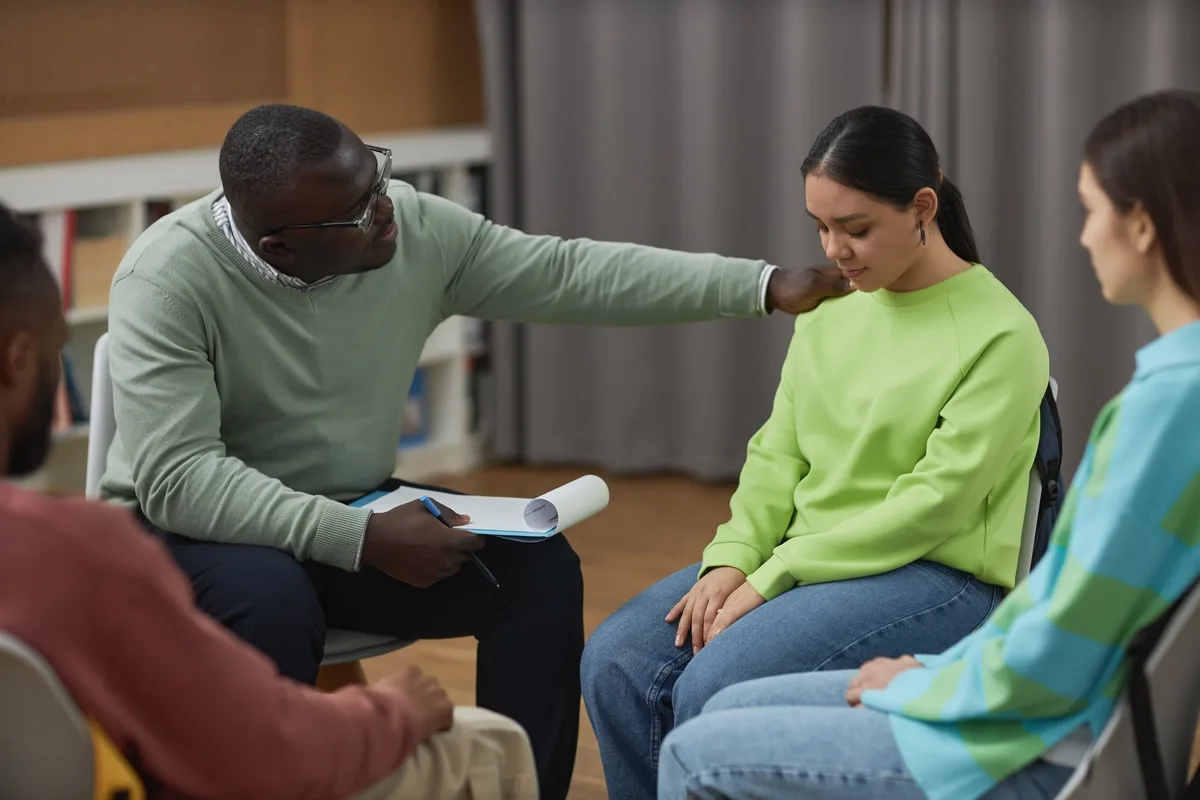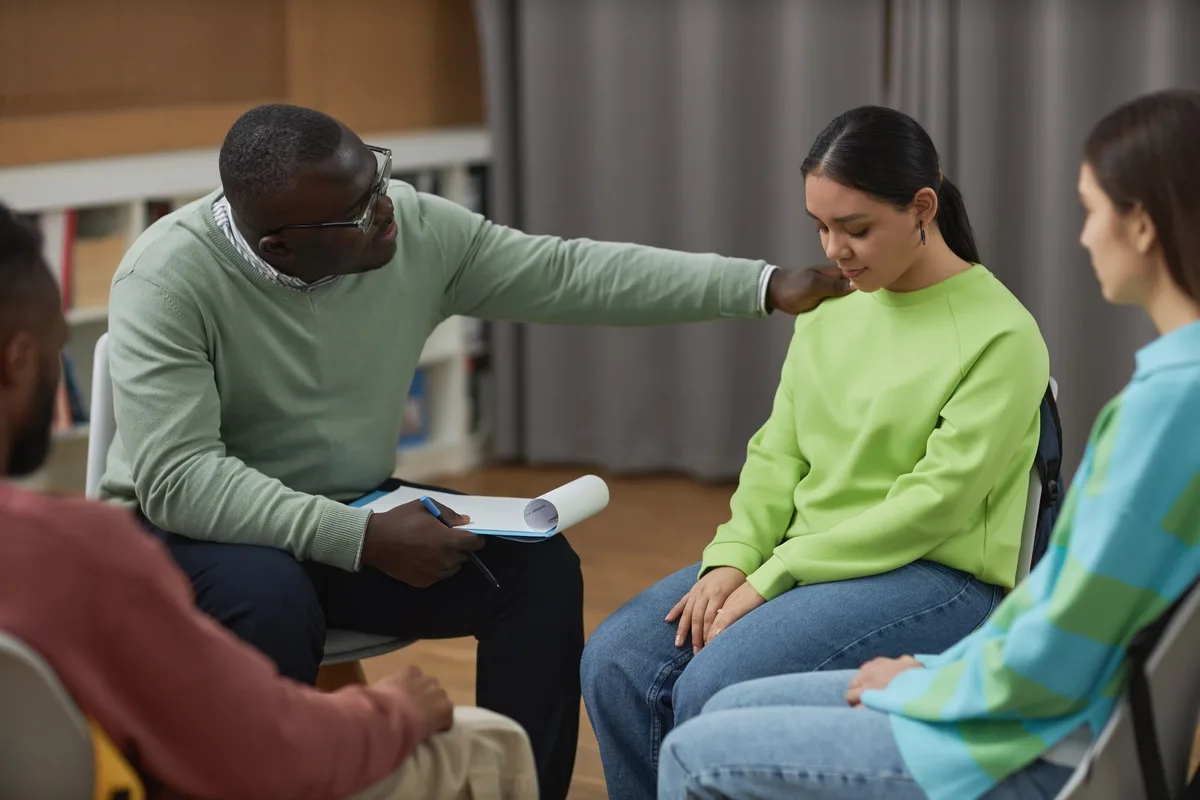24/7 Helpline:
(866) 899-221924/7 Helpline:
(866) 899-2219
Learn more about Heroin Rehab centers in Christian County

Other Insurance Options

Carleon

MVP Healthcare

Molina Healthcare

BlueShield

Premera

Meritain

Highmark

CareFirst

Self-pay options

Holman Group

Oxford

Aetna

Magellan Health

Ambetter

Multiplan

Humana

Amerigroup

Sliding scale payment assistance

Ceridian

WellPoint

Behavioral Health Services North
Behavioral Health Services North is a non-profit rehab located in Morrisonville, NY. Behavioral Heal...

South Texas Behavioral Health Center
South Texas Behavioral Health Center is a drug and alcohol rehab located in Edinburg, Texas. They pr...

Behavioral Hospital at Reinasance
DHR Health Behavioral Hospital is a comprehensive dual diagnosis substance use treatment center in E...

TTBH – Tropical Texas Behavioral Health
Tropical Texas Behavioral Health (TTBH) is located in Edinburg, Texas. Tropical Texas Behavioral Hea...


























































































Liberty Counseling Center
Liberty Counseling Center is a private rehab located in Taylorville, Illinois. Liberty Counseling Ce...

New Horizons
New Horizons is a private rehab located in Pana, Illinois. New Horizons specializes in the treatment...

New Horizons Substance Abuse
New Horizons Substance Abuse is a private rehab located in Taylorville, Illinois. New Horizons Subst...

Christian County Mental Health
Christian County Mental Health is a private rehab located in Taylorville, Illinois. Christian County...

A Helping Hand
A Helping Hand AHEAD is a private rehab located in Edinburg, TX. A Helping Hand AHEAD specializes in...

New Beginnings – Behavioral Health
New Beginnings – Behavioral Health is a private rehab located in Edinburg, Texas. New Beginnings – B...

TTBH – Tropical Texas Behavioral Health – Substance Use Disorder Services
Tropical Texas Behavioral Health (TTBH) - Substance Use Disorder Services is located in Edinburg, Te...



































































































